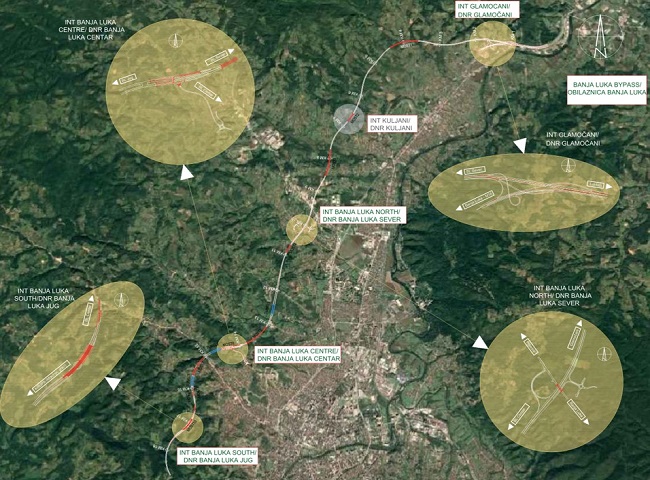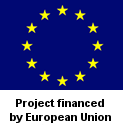About the project
The Banja Luka Bypass Project is funded through the financial assistance under Instrument for Pre-accession Assistance II (IPA II), awarded to €2.6 million.
The overall objective of the Project is the assistance in improving economic and social development in BiH through the improvement of the transport infrastructure in line with the Connectivity Core Network (TEN-T) and SEETO Comprehensive Transport Network.
The purpose of the Project is to facilitate access to loan funds of International Financial Institutions, predominately European banks, the European Bank for Reconstruction and Development and European Investment Bank, for the country of BiH to implement construction of the respective motorway section in Republika Srpska.
The Project shall result in improving motorway alignment, increasing safety and providing for the required capacity and level of service through provision of Preliminary and Main Design and Tender Dossier for the respective motorway section on the territory of the City of Banja Luka, with indicative length of 17 km.
Construction of Banja Luka Bypass motorway shall allow missing link to connect east-west and north-south motorway corridors into one comprehensive motorway network of Republika Srpska as part of integrated transport network of Bosnia and Hercegovina.

In the period 2014-2020, an indicative allocation of €552.1 million has been earmarked for Bosnia and Herzegovina (including the Civil Society Facility, the Regional Housing Programme and the Special Measure in support to Bosnia and Herzegovina in managing the migration flows).
The EU has financed number of transport infrastructure construction and reconstruction projects, including the urgent rehabilitation of the key bridge structures on BiH roads in the post-war period including Rača, Brčko, Jasenovac-Una, Jasenovac-Sava (co-financed by Croatia), Karuše and Kostajnica, but also a number of small bridges were repaired through SFOR Micro projects. The EU has also assisted in urgent rehabilitation of the main road sections, but more substantial undertakings have been performed only over the last few years, thanks to the EIB and EBRD loan support to the sector. Furthermore, construction of two international bridges over Sava River, Svilaj and Gradiska, as well as some other sections of motorways on the Core network are financially supported with the EU grant funds up to 20% of investment cost through the WBIF - Western Balkans Investment Framework. Bosnia and Herzegovina is the biggest consumer of WBIF grant funds, confirming a very high level of maturity of projects subject to EU financing.
Financing of Transport sector projects shall allow integration of Bosnia and Herzegovina road and rail networks, aviation as well as inland navigation, maritime and ports within the region and with the EU, in line with relevant EU acquis and the agreed Connectivity Reform Measures. Development of transport infrastructure of which this project is only a part, is expected to generate economic benefits through reduction of transport costs, expansion of internal and foreign trade, increase of revenue through providing transit services, attracting foreign investments, providing opportunities for creating business in other branches and sectors. The key impact of envisaged by the implementation of this and other similar projects is the achievement of economic growth through better connecting between the regions of the South-East Europe, and consequently improvement of the competitiveness of the economies, their efficiency, and better access to the markets.



